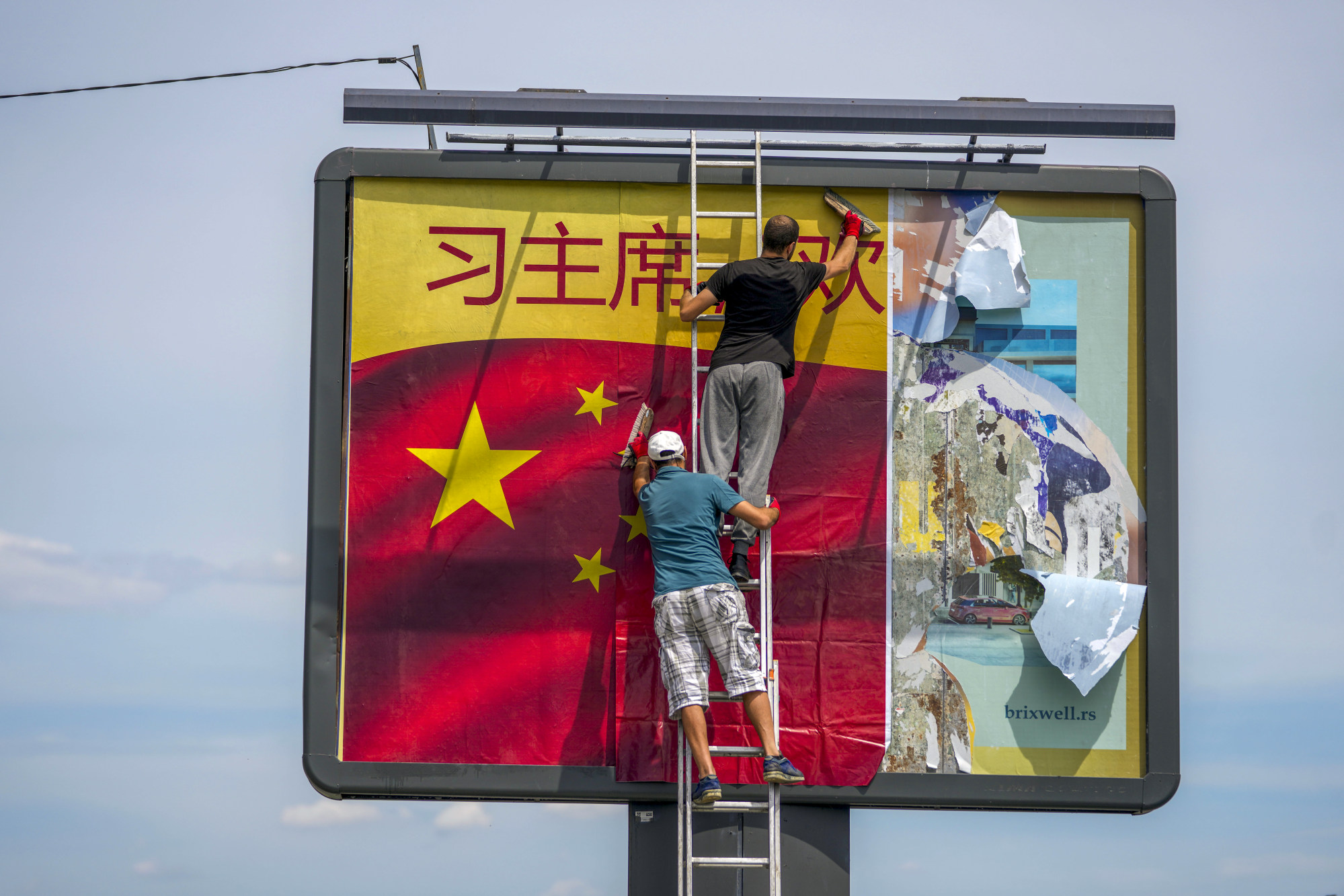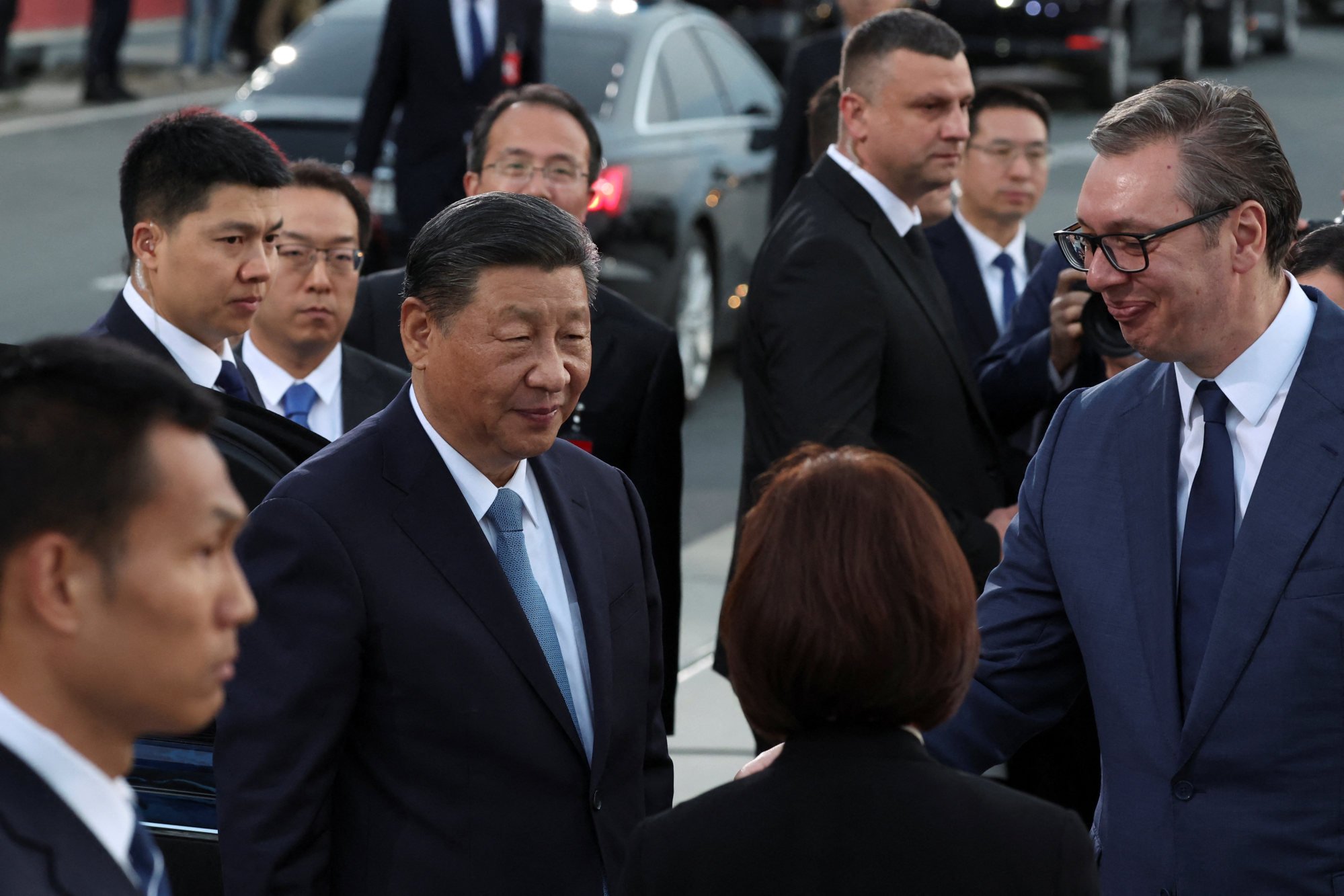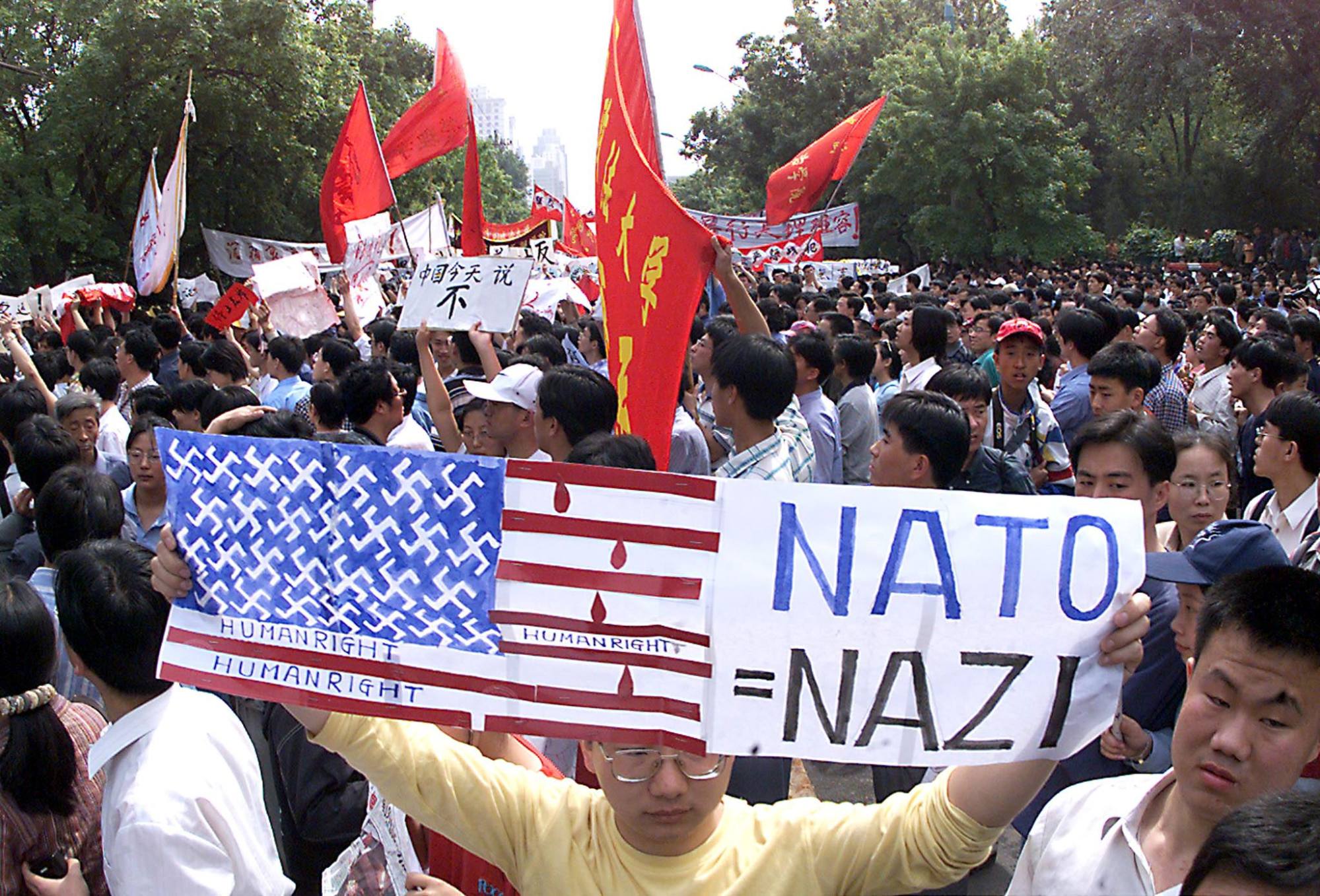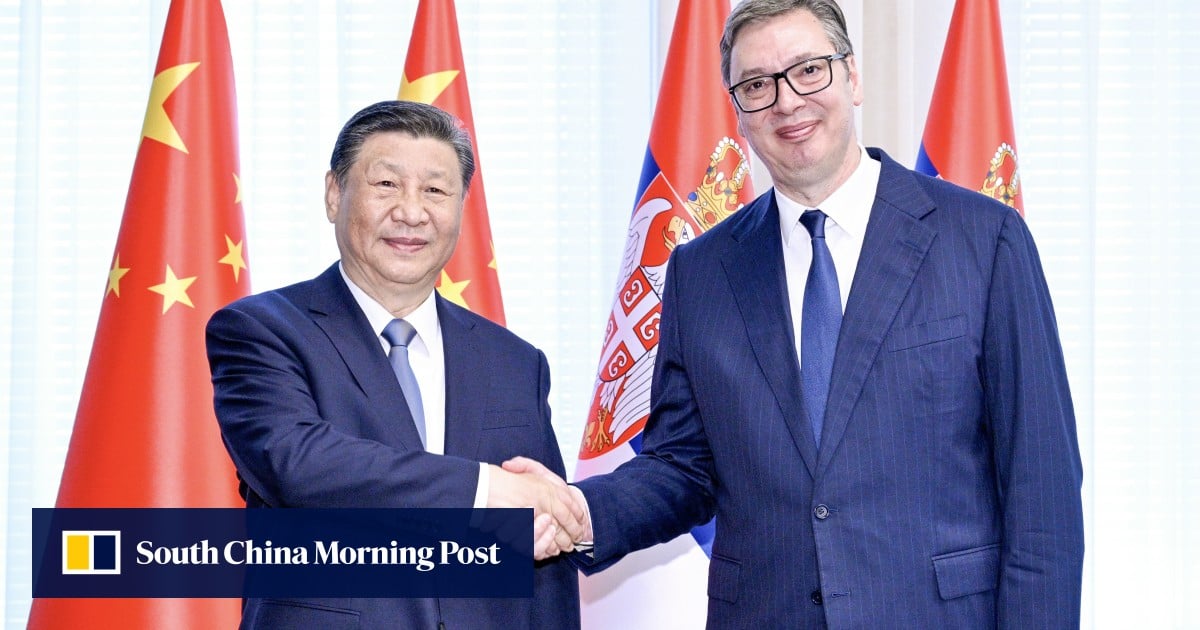“Twenty-five years ago today, Nato flagrantly bombed the Chinese embassy in Yugoslavia, killing three Chinese journalists—Ms. Shao Yunhuan, Mr. Xu Xinghu and his wife Zhu Ying. This we should never forget,” Xi wrote in an article placed in Serbian newspaper Politika on Tuesday.

In an online briefing on Wednesday to mark the end of his tenure in Belgrade, Gabriel Escobar, Washington’s outgoing special envoy for the Western Balkans, criticised the timing of Xi’s visit.
“The visit was timed to increase tensions between Serbia and the rest of the Western community, and it’s unhelpful,” he said.
“We – the United States has said that the bombing of the Chinese embassy in 1999, was an accident,” Escobar explained. “We’ve apologised. I believe we’ve actually even paid reparations to the families. But… I do believe that the timing of the visit was unfortunate but deliberate.”
The strike was part of Nato’s military campaign in the former Yugoslavia, setting off a diplomatic crisis between Beijing and Washington as well as the biggest anti-US protests across China in decades.
The US and its Nato allies insisted the “entirely unintended” strike had meant to target a Yugoslav military facility and the embassy had been misidentified in a “tragic mistake”.
However, many in China – including government officials – rejected that characterisation and remain unconvinced.
China has maintained close ties with Serbia since siding with the former Yugoslavia against Nato’s air campaign in the 1990s.

On Wednesday, Xi reaffirmed his “ironclad” support for Serbian President Aleksandar Vucic, with the two leaders backing each other’s territorial claims over Taiwan and Kosovo, respectively.
China, as part of the United Nations’ Security Council, has helped ensure that Kosovo, which the Serbian government views as a breakaway province, from receiving official recognition at the body.
“We have a clear and simple position regarding Chinese territorial integrity. Yes, Taiwan is China,” Vucic said on Wednesday, addressing a crowd estimated to number 20,000 people, alongside the Chinese leader.
The pair signed an agreement boosting their strategic partnership to a “community with a shared future in new era”, while a free-trade agreement is set to kick in on July 1.

The long-standing Hungarian leader has been a stumbling block to European unity over Ukraine and a strong backer of Chinese positions on human rights and economic issues.
In a separate article in the pro-Orban newspaper Magyar Nemzet on Wednesday, Xi wrote that “China and Hungary share similar views and positions close to each other on international and regional issues.”
“We have embarked on the right path of independent and autonomous friendly foreign relations of sovereign countries,” he continued.
Escobar, who is imminently departing from his role as deputy assistant secretary of the Bureau of European and Eurasian Affairs, said that Xi had chosen countries “that are open to challenging the unity of the Euro-Atlantic community”.
The Biden administration has had a troubled relationship with populist Orban, who has openly expressed his wish to see former President Donald Trump to win in November’s US election.
“We caution all of our partners and all of our interlocutors to be very aware of China’s agenda in Europe and China’s agenda with regard to the Euro-Atlantic community,” Escobar said.

